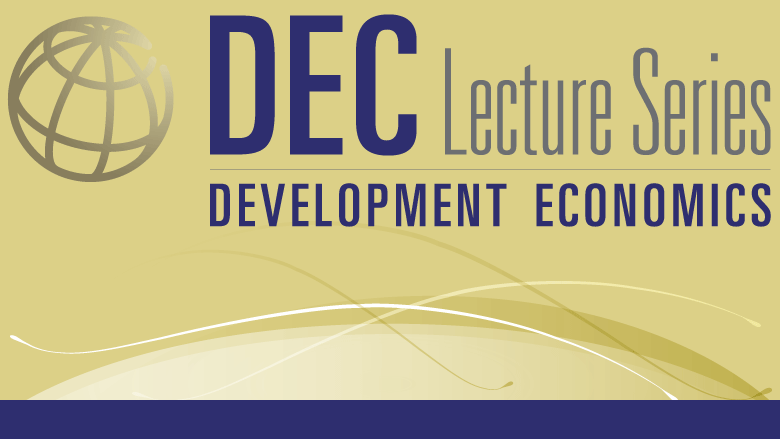
Aspirations, Stereotypes and Educational Choices
May 6, 2019
Washington, DC

-
Eliana La Ferrara is the Fondazione Romeo ed Enrica Invernizzi Chair in Development Economics at Bocconi University. Her research focuses on the economics of conflict, ethnicity, social norms, institutions, and the media. She has published in leading journals, including the American Economic Journal: Applied Economics, American Economic Review, Economica, and the Journal of Public Economics among others. She was the 2018 President of the European Economic Association and she is Vice-President of the Bureau for Research in Economic Analysis of Development (BREAD). Eliana is also a fellow of the Centre for Economic Policy Research (CEPR), Innocenzo Gasparini Institute for Economic Research (IGIER), Econometric Society, and the International Economic Association. She received a bachelor in Economic and Social Sciences and a PhD in Political Economics from Bocconi University and a PhD in Economics from Harvard University.
-
How do negatively stereotyped groups make educational choices? How do the stereotypes of teachers and peers impact their performance? The talk will bring evidence from different countries and contexts to speak to the above questions. First, it will show that high-achieving immigrant children in Italy’s tracked school system under-aspire compared to native students and will discuss the impact of a large-scale, randomized intervention providing tutoring and career counseling to high-ability immigrant students. Second, it will analyze the role played by teachers’ bias and show that making teachers aware of their negative stereotypes towards immigrants leads to a change in their grading policy. Finally, it will discuss the role of peers’ racial stereotypes in South Africa, and discuss how inter-group contact affects stereotypes and educational performance of different groups.
-
The Development Economics Vice Presidency (DEC) launched its lecture series in April 2005 to bring distinguished academics to the Bank to present and discuss new knowledge on development. The purpose of the Lecture Series is to introduce ideas on cutting edge research, challenge and contribute to the Bank's intellectual climate, and reexamine current development theories and practices. The Lectures revisit issues of long-standing concern and explore emerging issues that promise to be central to future development discourse. The Lecture Series reflects DEC’s commitment to intellectual leadership and openness in embracing future challenges to reduce poverty.
The DEC Lecture Series is chaired by Shanta Devarajan, Senior Director, Development Economics, and includes a presentation and floor discussion.
Please visit DEC Lecture Series to access additional information about this event series as well as presentation materials from past talks.
Lecture Details
- Date: May 6, 2019
- Time: 12:30 – 2:00 PM
- Venue: MC 13-121